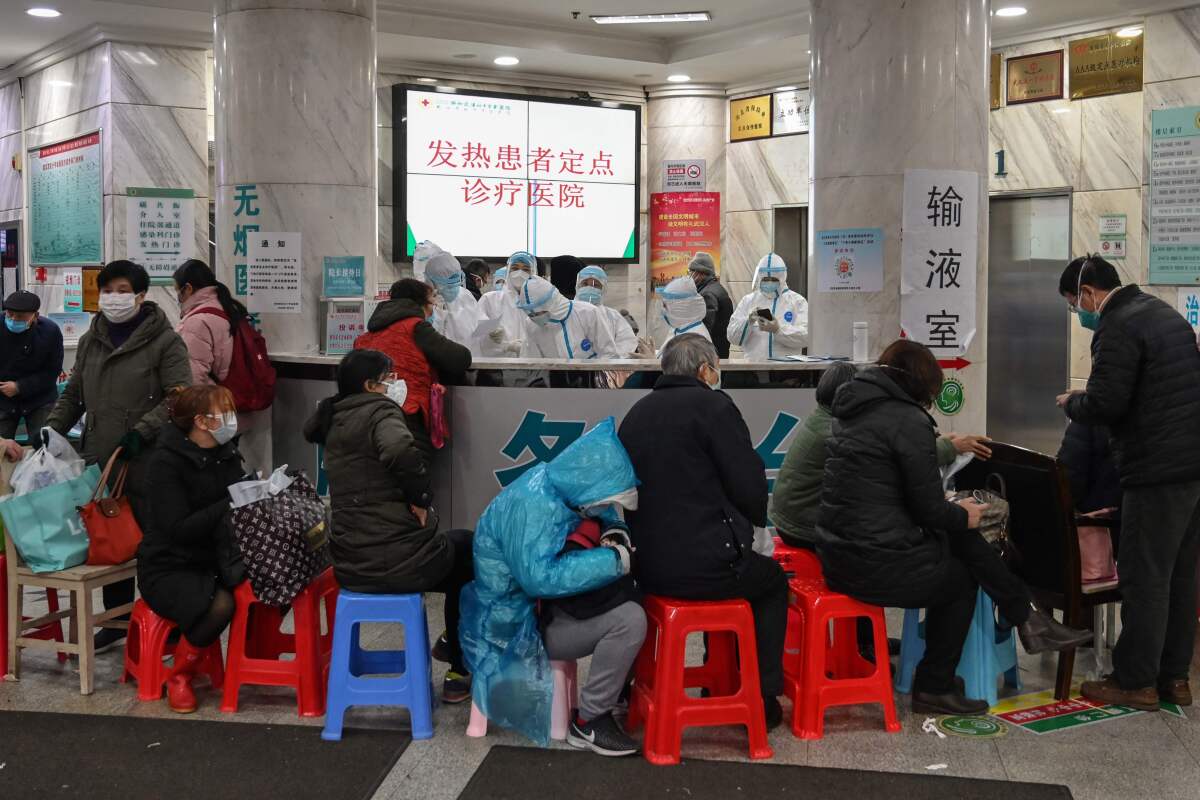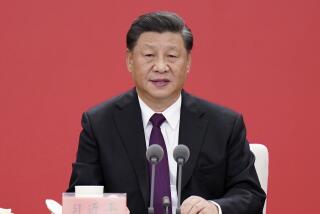Op-Ed: China’s media censorship is making the coronavirus outbreak even more lethal

- Share via
As reports of new coronavirus infections soar, it’s becoming clear that Chinese government leaders have been putting their political interests ahead of public health. This is not a surprise but a long-established pattern.
In recent days, medical experts have found evidence that the origin of the outbreak was not a seafood market in Wuhan, as the Chinese government initially reported. That evidence also suggests that the first human infections occurred in November, if not earlier, rather than in early December.
Local officials in Wuhan quashed the first reports of a SARS-like illness in the city in December, in part to maintain a positive environment for a series of political meetings. Even now, there is reason to believe that the scale of infections is greater than the official figures and censors are continuing to delete investigative reports by local journalists raising those concerns.
Analysis of leaked government censorship directives dating to 2013 by Freedom House shows that suppression of public health information is commonplace. In 2016 and 2017, for example, public health and safety were among the two most censored categories of breaking news.
Given the rapid spread of the virus and the enormous economic effects expected, censorship and propaganda are certain to continue — and to extend beyond China’s borders — as the regime seeks to protect its hold on power and international reputation. While Chinese authorities assure domestic and international audiences that their efforts will contain the outbreak, censors are busily deleting social media posts and journalists’ reporting that contradict the official narrative.
Chinese Human Rights Defenders, a nonprofit organization with extensive contacts in China, has already tracked more than 300 cases of internet users who were penalized for sharing unofficial information on social media.
Beyond domestic censorship, the Chinese government is likely to use its multipronged apparatus to influence foreign reporting. Localized internet shutdowns, arrests of citizen journalists and expulsions of foreign correspondents are standard tactics to halt the flow of information to international audiences. These measures may be supplemented with more aggressive actions against foreign media, like harassment from Chinese diplomats or cyberattacks against critical outlets. Such efforts — once mostly focused on overseas Chinese media — have been deployed with increasing frequency against mainstream news services in recent years.
The government’s propaganda system can also readily mobilize state media as well as more covert channels to amplify its message globally. The hundreds of diaspora outlets in 61 countries, many with a track record of uncritical pro-Beijing reporting, that participated in a state-sponsored summit for Chinese-language media in October will face implicit or explicit political and economic pressure to adhere to coverage by official Chinese sources. Already, pro-Beijing outlets in the United States are parroting the official line, while Chinese state media accounts on Facebook and Twitter have spread proven fabrications.
Global disinformation campaigns on social media platforms could also be deployed. Since 2017, Russian-style disinformation tactics have been used to smear the government’s perceived enemies — such as Hong Kong protesters, Uighur Muslims and Chinese democracy activists — on platforms such as Facebook, Twitter and YouTube, which are blocked in China. Similar campaigns could be launched, for example, to discredit Chinese medical professionals who challenge the official version of events. Chinese-owned social media platforms such as WeChat, which is popular among Chinese speakers around the world, are a potential hotbed even for unintentional misinformation.
To counter the effects of Beijing’s censorship and propaganda related to the coronavirus, American public health agencies should make a conscious effort to relay critical updates to Chinese-speaking communities through both privately owned and government-funded Chinese-language news services. U.S. officials should also protest any media interference by Chinese diplomats and security agents, and provide emergency funding to expand the capacity of online censorship circumvention tools to address demand from users in China trying to access and share uncensored information on the global internet.
During any public health crisis, there is a legitimate concern that false information from any source could result in panic. But censorship of credible and important information that happens to make the Chinese government look bad could be equally harmful.
Medical experts report that the wave of infections has not yet reached its peak. In the coming months, transparency about the coronavirus and efforts to combat it will be critical to reducing its spread. Chinese media controls have always had deeply corrosive effects at home and abroad, but their potential threat to human life if this outbreak becomes a pandemic would be devastating.
Sarah Cook is a senior research analyst at Freedom House, director of its China Media Bulletin, and author of “Beijing’s Global Megaphone: The Expansion of Chinese Communist Party Media Influence since 2017.”
More to Read
A cure for the common opinion
Get thought-provoking perspectives with our weekly newsletter.
You may occasionally receive promotional content from the Los Angeles Times.










